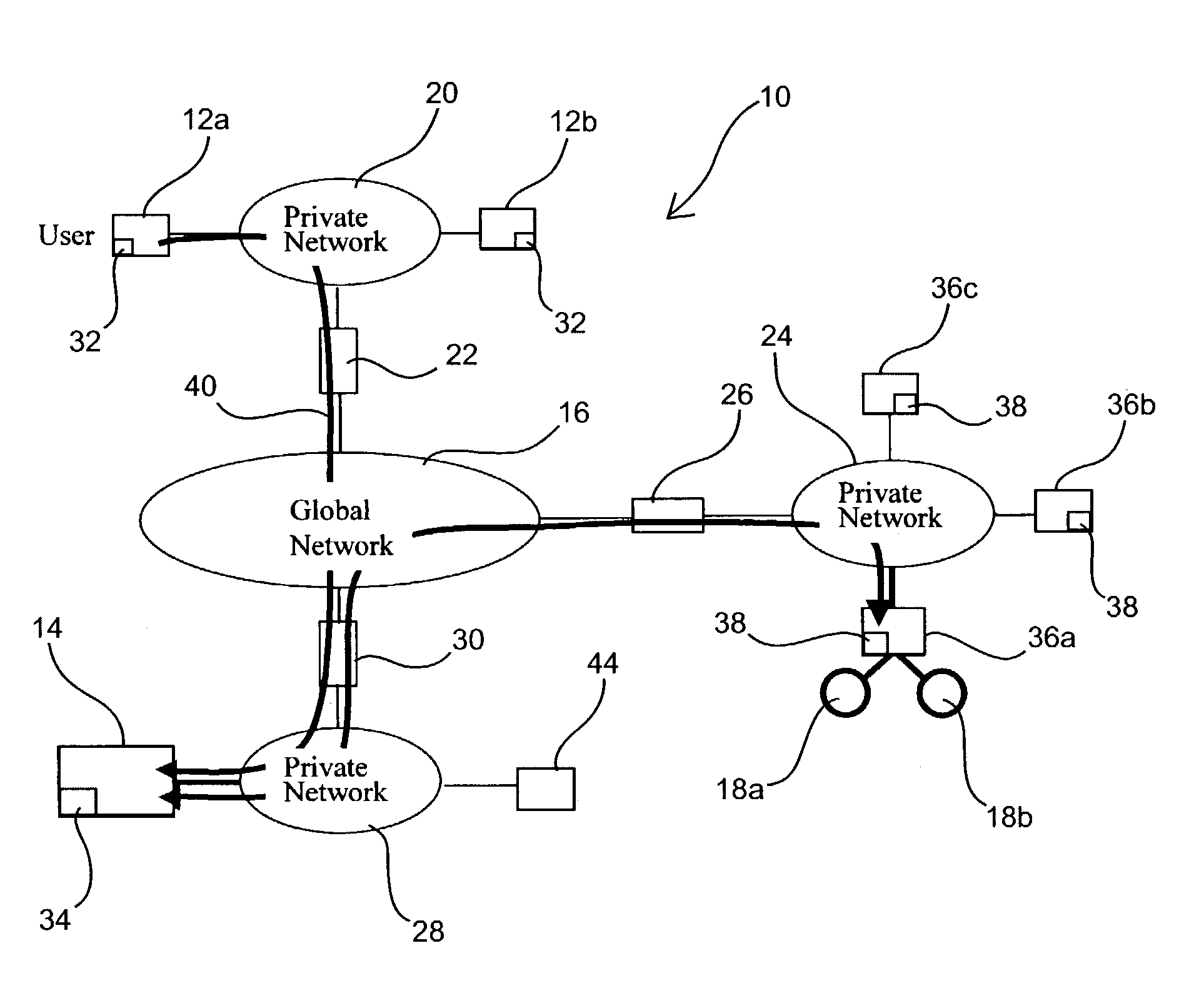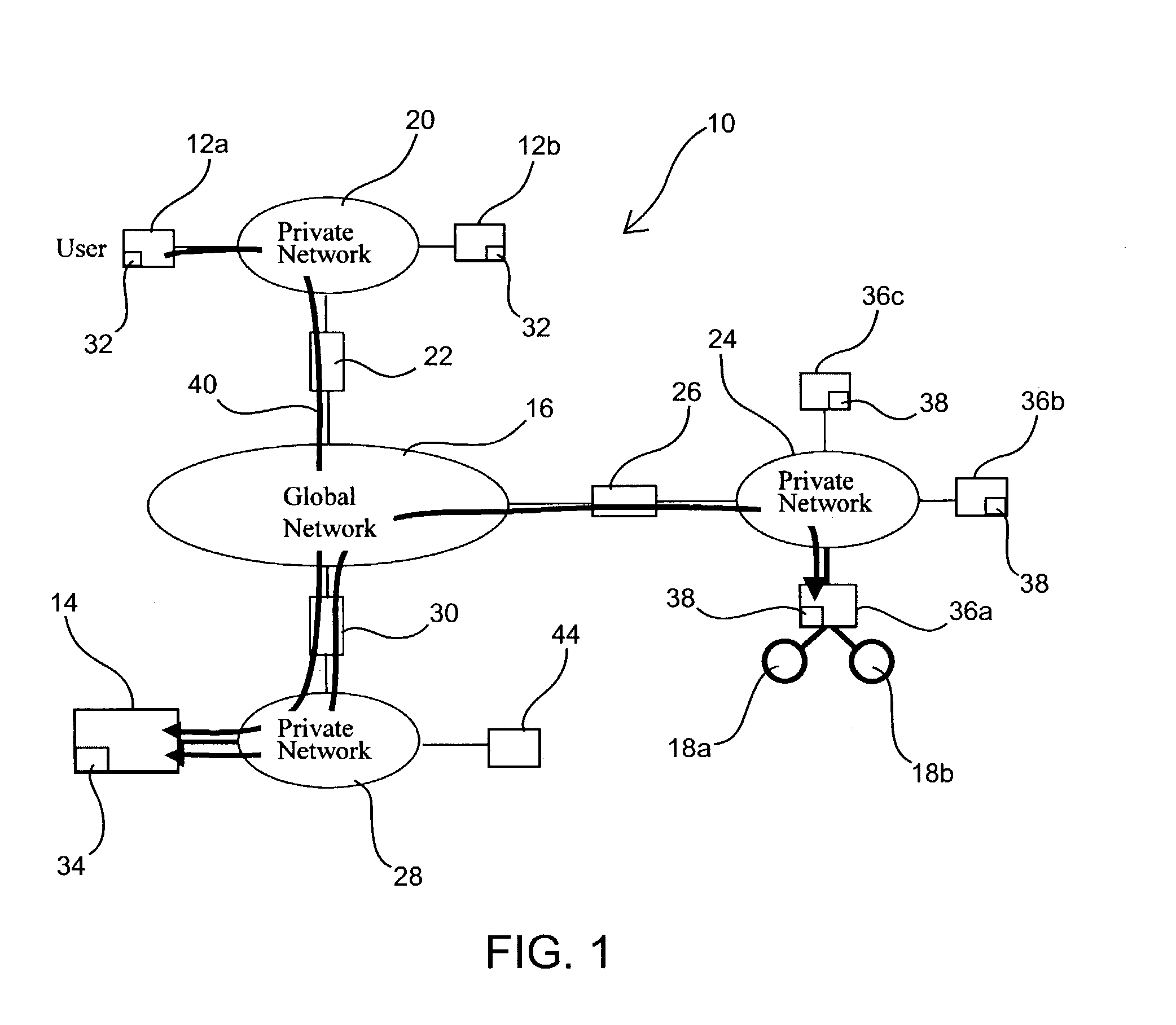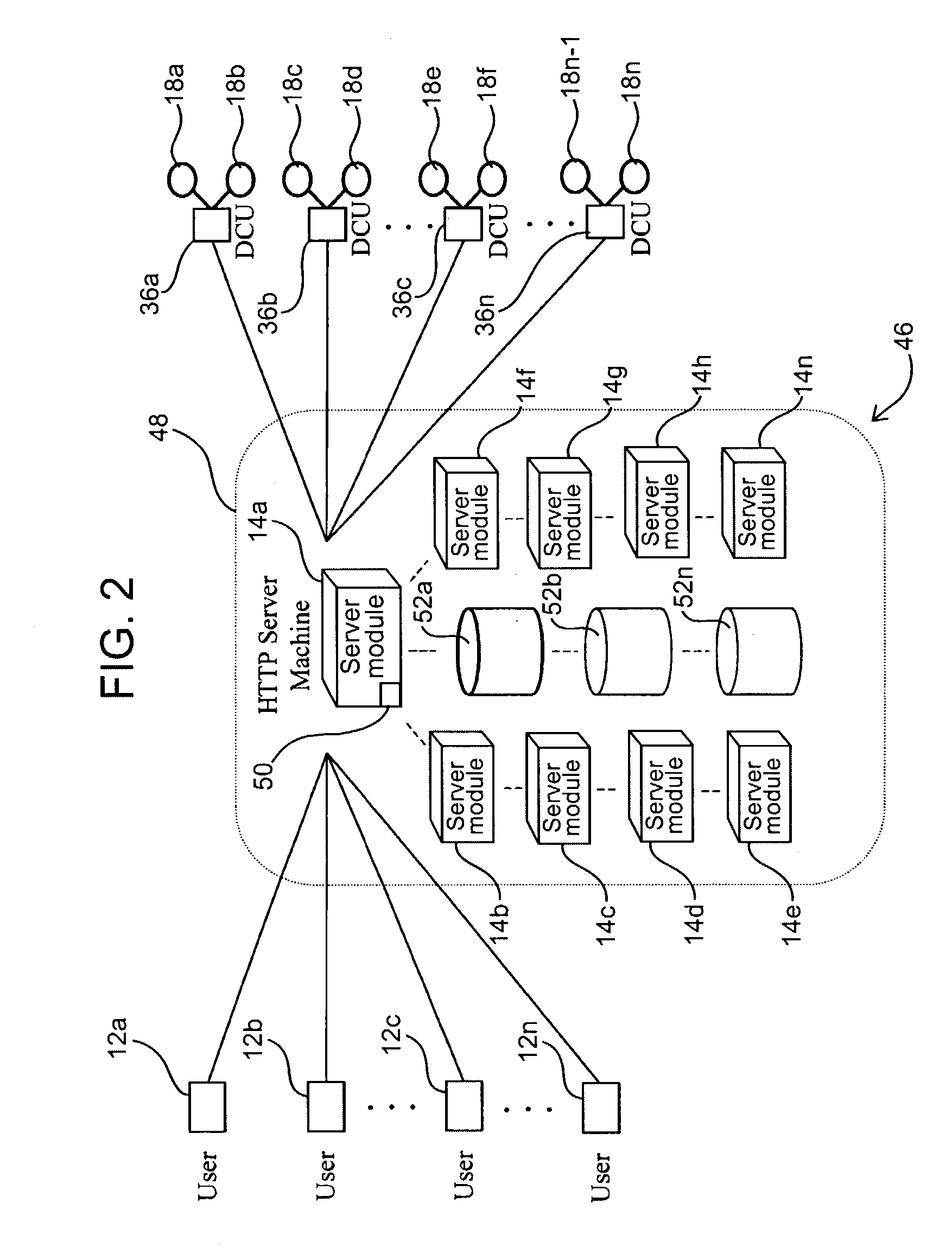Access and control system for network-enabled devices
a network-enabled device and control system technology, applied in program control, digital transmission, instruments, etc., can solve the problems of slow data transfer between the device and the remote user, system installation and maintenance is expensive and difficult, and the remote access of the device through the internet has presented many problems
- Summary
- Abstract
- Description
- Claims
- Application Information
AI Technical Summary
Benefits of technology
Problems solved by technology
Method used
Image
Examples
Embodiment Construction
[0028]Disclosed herein are remote access and control systems and methods for remote, network-enabled devices that provide seamless, firewall-compliant connectivity between multiple users and multiple devices, and which allow collaborative operations by multiple users of remote devices. Before the subject invention is described further, it should be understood that the invention is not limited to the particular embodiments described below, as variations of the particular embodiments may be made and still fall within the scope of the appended claims. It is also to be understood that the terminology employed is for the purpose of describing particular embodiments, and is not intended to be limiting. Instead, the scope of the present invention will be established by the appended claims.
[0029]Any definitions herein are provided for reasons of clarity, and should not be considered as limiting. The technical and scientific terms used herein are intended to have the same meaning as commonly...
PUM
 Login to View More
Login to View More Abstract
Description
Claims
Application Information
 Login to View More
Login to View More - R&D
- Intellectual Property
- Life Sciences
- Materials
- Tech Scout
- Unparalleled Data Quality
- Higher Quality Content
- 60% Fewer Hallucinations
Browse by: Latest US Patents, China's latest patents, Technical Efficacy Thesaurus, Application Domain, Technology Topic, Popular Technical Reports.
© 2025 PatSnap. All rights reserved.Legal|Privacy policy|Modern Slavery Act Transparency Statement|Sitemap|About US| Contact US: help@patsnap.com



